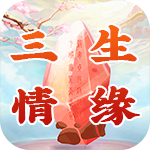1. 英語中表示憤怒的話
漢語習語英譯13.[偷懶耍滑頭]goof-off小王總是偷懶耍滑頭。
上班時,不是去打電話,就是跑到醫務室去看病。Xiao Wang's always goofing-off -- either making phone calls or going to the clinic to see doctors during office hours.漢語中“偷懶耍滑頭”很接近英語goof-off這一短語的意思。
此語主要用于逃避工作或故意偷懶的場合。14.〔大動肝火]be up in arms由于公司最近幾個月的銷售業績不佳,老板正在大動肝火。
The boss is up in arms about the company's poor sales record in the past few months. 漢語中“大動肝火”或“憤怒已極”之類的概念除了可以用fly into a rage, be filled with indignation的片語表示外,還可以用be up in arms的習語來表達。此語的意思是“舉起雙臂,抖動兩個拳頭”,表示憤怒。
15.[保持冷靜〕keep cool即使是在十分氣憤的情況下她也能保持冷靜。She can keep cool even under heavy pressure of anger.漢語中“保持冷靜”的說法在英語中有以下幾種表示方法:to keep cool, to keep calm, cool it, hold one's horses,等等。
但是在口語中,英美人通常keep cool和keep calm兩種。16.[說話兜圈子]beat about the bush別跟我兜圈子了,快說你到底想干什麼吧!Stop beating about the bush. Just tell me what you want!“說話兜圈子”意指“說話拐彎抹角”或不能“直來直去”。
可以用 beat about (around) the bush的片語來表示。此語直譯為“在灌木叢中胡亂拍打”,意思就是“分敲側擊”或“兜圈子”。
17.[心懷叵測]have an ax to grind她總是心懷叵測,對她說的話你得多留神。She always has an ax to grind. You should take whatever she say with a pinch of salt.“心懷叵測”相當于漢語口語中“沒安好心”或“沒好心”的意思。
接近于英語have an ax to grind的說法。此語直譯為“有一把斧子要磨”。
據說,此語源于美國政治家本杰明·富蘭克林(Benjmin Franklin,1706--1790)的少年生活,一天有一男子想磨斧子。由于他不知怎樣使用磨石,于是,年幼的富蘭克林便用盡全身力量把重達一百多公斤的grindstone推轉很多次。
此間,那個男子連連夸獎富蘭克林。可是,斧子剛一磨好,他就嘲笑地對富蘭克林說:“是故意讓你這樣干的”說罷轉身就走了。
后來此語轉喻“心懷叵測”。18.[心術不正〕not have one's heart in the right place他的心術不正,動不動就在別人的背后涌刀子。
He doesn't have his heart in the right place. He would find every opportunity to stab in the back of others.上面談到的“心懷叵測”強調“另有企圖”或“用心不良”的某段時間內的行為,而“心術不正”則指人壞的品質。因此,偶爾“心懷叵測”的人倒不一定是個一貫“心術不正”的人。
有人曾用not have a good heart譯之,但不如用not have the heart in the right place的表示法更符合口語習慣。此語直譯為“心沒長在正地方上”,即“心術不正”。
19.[背后捅刀子]stab in the back我萬萬沒有想到張某會在背后捅我一刀。我過去太信任她了。
I was taken aback and didn't think Zhang would stab me in the back. I placed too much trust in her.漢語中“背后捅刀子”、“暗下毒手”以及“腳底使絆”之類的概念在很多情況下都可用 stab somebody in the back的片語來表示。此語與漢語的“背后捅刀子”幾乎是形合意切。
20.[說某人的壞話〕badmouth somebody我從來沒說過任何人的壞話。I've never badmouthed anyone.“說人的壞話”在英語口語中有兩種表示方法:一是speak evil of somebody, 二是badmouth somebody。
比較起來,后者更具口語色彩。
2. 形容人非常憤怒的句子
take offence; get angry; be offended with; be angry at; be in a rage with sb.; fall into a rage; fly into a passion; be in a passion; be cross with sb.; be furious at; be red [white] with anger; be white with rage; thunder at a person; be in a thundering rage; be exasperated with a person; fly into a fury; be beside oneself with anger; boil with rage; be filled with fury; be burning with anger; be in a great rage; bristle with anger; make angry; be annoyed; be ruffled; be irritable; be fretful; irritate; be indignant at sth.; take sth. amiss; be incensed at; His back is up.; get one's back up; see red; give sb. a fit; have a fit; be in a huff; bridle with anger; be in a temper; set one's teeth on edge; cut up rough; crotchety; fly off the handle; go off the deep end; be mad about; make one's blood boil; go off the top; play sb. up; raise Cain; take on; fire up。
3. 如何用優雅的英文表示憤怒
中國人常用“罵人不帶一個臟字”來形容那些會罵人又刻薄的人。在英語中,我們反感那些以P、以D開頭的骯臟字眼!而對于處于極度憤怒中的人來說難免也需要口頭發泄發泄,但為了避免那種引人反感且自我反感的臟話,他們也許可以從下面的語言表達中學到點什麼……
1,Hey!wise up!放聰明點好嗎?
當別人做了蠢事時,你可以說,“Don't be stupid!”或“Don't be silly.”但這是非常不禮貌的說法。客氣一點的說法就是:Wise up!你也可以用尖酸刻薄的語氣說:Wise up, please.然后故意把please的尾音拉得長長的。
2,Put up or shut up.要麼你就去做,不然就給我閉嘴。
要注意的是,Put up字典上查不到“自己去做”的意思,但口語表達則有此意。
3,You eat with that mouth?你是用這張嘴吃飯的嗎?
別人對你說臟話,你就回敬他這句,言下之意是你的嘴那麼臟,你還用它吃飯?還有一種說法:“You kiss your mother with that mouth?”你用這張臟嘴親你媽媽嗎?
所以下次記得如果有老外對你說臟話,不要再罵回去,保持風度,說一句,“You eat with that mouth?”就扯平了。
4,You are dead meat.你死定了。
也可以說:“You are dead.”你完蛋了。
5,Don't you dare!How dare you!你好大的膽子啊!
這句話可以在兩種場合說,第一種是很嚴肅的場合,如小孩子很調皮,不聽話,父母就會說,“Don't you dare!”意思是你給我當心點,不然等會就要挨打了。另一種場合是開玩笑,如有人說他要跟某網友約會,你說“Don't you dare?”就有點開玩笑的語氣,你不怕被恐龍給吃了嗎?
6,Don't push me around.不要擺布我。
通常當我講這句話時,我還會想到一個字“bossy”,像是老板一樣,喜歡指揮別人。如:“You are so bossy. I Don't like that.”這句話也可以單講,“Don't push me.”或“Don't push me any further.”。
7,You want to step outside?想到外去單挑嗎?
二個人一言不合吵起來了,可能就有人要說這句了,指的就是要不要出去打架啦。我還聽過類似的用法,如:“Do you want to pick a fight?”你要挑起爭端嗎?
4. 如何用英語表達自己的氣憤之情,英語口語十句“最狠話
1.Just wait and see. I won't let you get away with that.
咱們走著瞧。我不會讓你得逞的。
2. You'll be sorry.
你會后悔的。
3. You're gonna get what's coming to you.
你會得到報應的。
4. If you're looking for a fight, you don't have to look far.
如果你想找人打架的話,不用找太遠。
5. Watch your mouth. Do you know who you're talking to?
說話客氣一點。你知道你在跟誰說話嗎?
6. I'll get even with you sooner or later.
跟你的這筆帳我遲早會要回來的。
7. Listen, you've picked the wrong person to quarrel with.
聽著,你找錯吵架的對象了。
8. You'd better take that back.
你最好收回那句話。
9. You want to take it outside? Anytime!
你想到外頭解決(干架)嗎?隨時奉陪!
10. Don't mess with me! / Don't get fresh with me!
不要惹我!/ 給我放尊重一點!
5. 請教十句有關憤怒的英語
1 I got so mad about it!我對這件事情非常火大!2. I just flew off the handle when I found out what he'd done.當我知道他做的好事時,我氣瘋了。
3. I almost blew my top when I found out that she had been lying to me.當我發現她一直在對我說謊時,我簡直快氣炸了。4. I hit the roof/ceiling!我氣炸了!5. I blew a fuse because he didn't do his homework.我是因為他沒有做功課才發火的。
6. My boss had a cow at the meeting this morning.我老板今天早上開會的時候發飆。7. I was so shocked when he flared up in front of everyone.他在大家面前大發雷霆的時候,我真是嚇壞了。
8. He really made my blood boil.他真是令我怒火中燒。9. She's really furious about it.她對那件事情真是火冒三丈。
10.I've never seen you so riled up.我從來沒看你這麼憤怒過。
6. 如何用英語表達生氣
這個應該是你要找的 生氣時 ●不滿和牢騷時 啊呸!真見鬼! Oh, heck! *heck表示有點灰心和失望。
Oh, heck! I failed the test. (噢,見鬼!沒考及格。) Oh, darn! Oh, no! 什麼! Shucks! *承認自己的錯誤,或回應別人對自己的不滿時。
Where is your homework? (你的作業在哪兒呢?) Shucks! I forgot it at home. (哎呀!我忘在家里了。) 真見鬼! Shoot! *表示厭惡、激怒、驚奇等。
常用來表示事情并不像自己所想像的那樣順利時。 Shoot! I Missed the train. (真見鬼!我沒趕上電車。)
Sheesh! 他媽的! Shit! *聽起來很低級。shoot是shit的委婉說法。
啊!糟了! Uh-oh. *表示“不好”、“糟了”,帶有驚訝的語氣。 Did you bring the book I lent you? (你借我的書帶來了嗎?) Uh-oh. I forgot. (啊,糟了,我忘了。)
有的事是行不通的。 Not everything is logical. *logical “合邏輯的”、“合乎道理的”。
Everything isn't always logical. Not everything follows the rules of logic. (金錢)全都浪費了。 It went down the drain. *drain “排水管”。
How was the investment? (投資的那個項目怎麼樣?) It went down the drain. (全都白搭了。) 就差那麼一點兒。
I almost made it. *用almost表示“差一點兒就……”。 The train just left. (電車剛走。)
I almost made it. (就差那麼一點兒。) I was almost on time. I was just a little late. (就晚了那麼一點兒。)
想點兒辦法吧! Do something! Our house is a mess? (我們的家真亂。) So, do something! (那,你就收拾收拾吧。)
Do something about it! Please do something about it.(請想點兒辦法吧!) Please take care of it for me.(請為我處理一下兒吧。) 我忙得要命。
I'm so busy. I'm so busy today. (我今天忙得要命。) How about tomorrow? (那明天怎麼樣?) I'm too busy. I'm as busy as a bee. *短語,“像蜜蜂一樣忙碌”。
這項工作對我來說太重了。 This task is too much for me. * task表示“作為任務分派給人的工作”。
This task is too much for me. (這項工作對我來說太重了。) Please don't give up yet. (請你別放棄。)
I can't complete this task alone. (我一個人無法完成這項工作。) This is too much for me to handle. 這麼點兒薪水我怎麼夠活呀! I can't make ends meet on my small salary. I can't live on my low pay. I can't get along on my scanty pay. I find it impossible to make ends meet on my small salary. 我再也忍不下去了。
This is the last straw. *last straw 表示“再也無法承受的負擔和困難上又新加的痛苦”。 Your husband hit you again? (你丈夫又打你了?) Yes. This is the last straw. (是的。
我再也忍不下去了。) That's it. I've had it up to here. I can't take it any more. 你的答復我接受不了。
Your response is unacceptable. *unacceptable 表示“接受不了”。 I'm not satisfied with what you say. Your answer is unsatisfactory. 我不滿意他的回答。
I'm not satisfied with his answer. *be satisfied with。 “對……感到滿意”。
I'm dissatisfied with his answer. His answer didn't satisfy me. 他今天一副挑釁的樣子。 He's got a chip on his shoulder today. *指“要打架的樣子”、“情緒不好的態度”。
公平點兒! Play fair! Play fairly! Don't cheat! (不許搞鬼。) 多費時費錢呀! What a waste of time and money! What a waste of time and money! (費時又費錢。)
Don't say that. (你別那麼說呀!) You're wasting your time and money! 你太慷慨了。 You're too generous. *在送給別人相當有價值的東西等場合時使用。
generous “慷慨的”、“不吝惜的”、“寬大的”、“度量大的”。 I'd like you to have this. (我想送你這個。)
You're too generous. Thank you very much. (你太慷慨了。謝謝。)
You're too kind. 他把一切都告訴了我。 He told me all about it. He told me everything. 怎麼花這麼長時間? What's taking so long? Why is it taking so long? 10分鐘怎麼也來不及。
I can't make it in ten minutes. I need more time. (我還需要點兒時間。) It'll take me longer than ten minutes. (要花10分鐘以上。)
Ten minutes isn't enough time. (10分鐘太倉促了。) 他看不起我。
He looks down on me. He despises me. He respects me. (他尊重我。) 你什麼忙也幫不了。
You're good for nothing. 簡直快讓我瘋了。 It drives me crazy. I hate that noise. (我真討厭那種聲音。)
It drives me crazy. (它簡直快讓我瘋了。) It makes me crazy. It drives me up the wall. 就這些嗎? Is that all? I'd like this one, and that one, please. (我要這個和那個。)
Is that all? (就這些嗎?) Is that it? Anything else? (還要別的嗎?) 這太少了。/這不夠。
That's not enough. *用于所持或得到的量不足時。 I'll give you 10% off. (我給你便宜10%。)
That's not enough. How about 20% off? (這太少了。20%怎麼樣?) I'd like more. (我還想要點兒。)
I need more. (我需要再多一點兒。) 他對我不公平。
He's unfair to me. *unfair “不公平的”、“不合理的”。 He treats me 。
7. 用什麼英語的句子形容angry的
英語是非常靈活的,
不能死記硬背,
look可以當系動詞,意思是“看起來”,
這時候要跟形容詞,如:
He looked happy.
但這個句子中,
look是實意動詞,
這個句子基本的結構是
He looked at his son.
不及物動詞look和介詞at共同組成一個短語動詞"look at",
意思是“看”
angrily在句子中的作用是修飾實意動詞look,屬于副詞作狀語


















